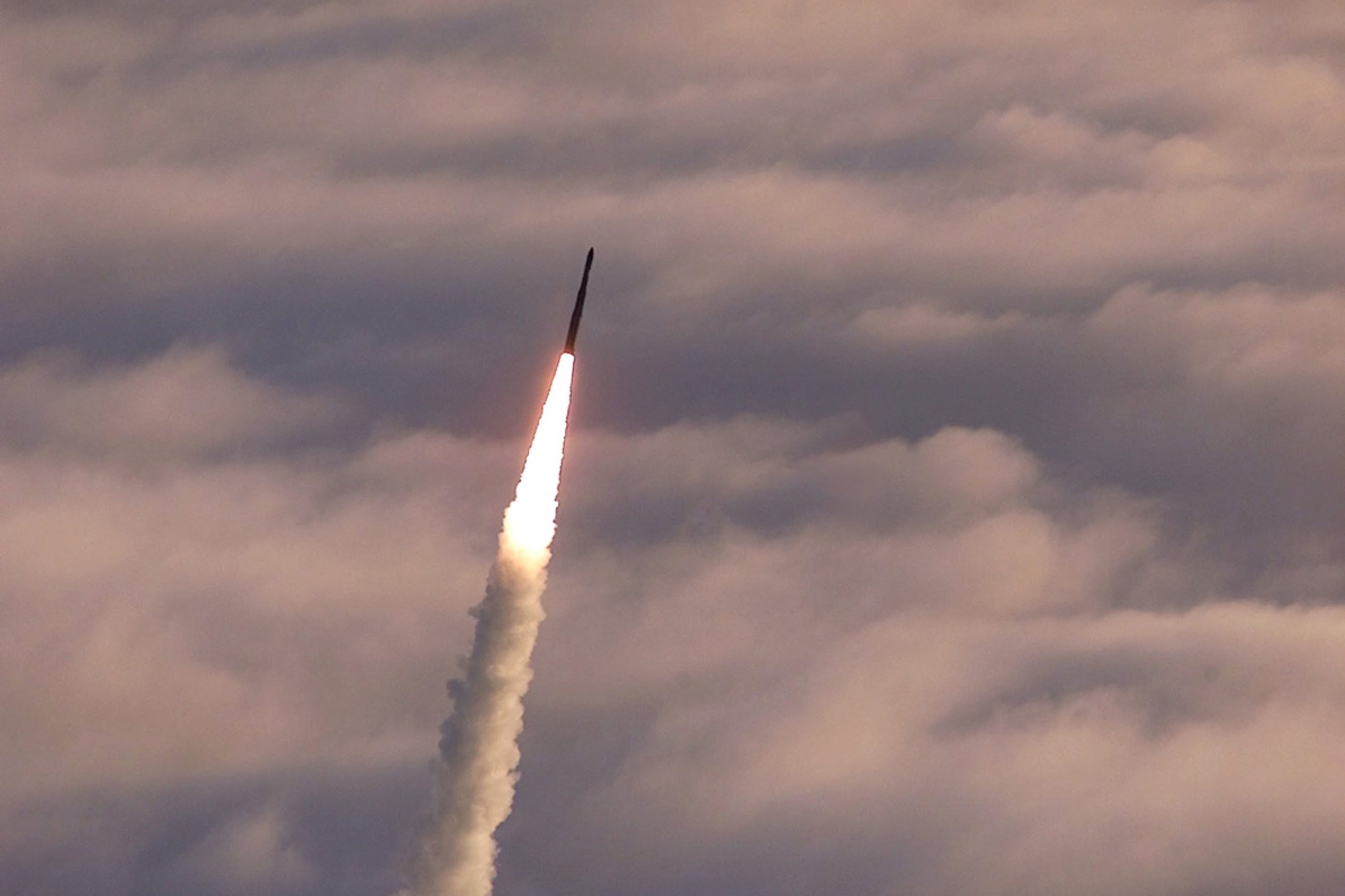The Pentagon told Congress late Thursday that inflation and other issues had driven up costs to build the replacement for aging nuclear missiles by more than one third, according to media reports and service officials.
Inflation provoked by the COVID-19 pandemic, poor budgeting procedures and persistent supply chain issues has pushed the cost of the highly secretive Sentinel missile program up 37%, the Pentagon said, according to The Wall Street Journal. Congress and the Department of Defense (DOD) are now reviewing the program to decide if the cost overruns warrant cancellation, although defense officials believe that scrapping the long-awaited nuclear upgrade initiative is not a viable option.
“Sentinel is absolutely necessary for the future of our nuclear deterrent. I’m committed to conducting vigorous oversight of the program and ensuring the Air Force follows through on making the necessary changes to address the cost overruns while continuing to advance the program,” Republican Alabama Rep. Mike Rogers, who chairs the House Armed Services Committee, said in an emailed statement Friday morning. (RELATED: Congress Could Grant $2.2 Billion Exception For The Navy To Build New Submarines Amid Fears Of Delayed Funding Bill)
“The Department must ensure that Sentinel is ready in time to replace the current ICBMs before they reach the end of their lives,” he added.
The estimated cost for Sentinel rose from $95.3 billion to more than $125 billion, according to Air and Space Forces Magazine.
A cost overrun of more than 30% is considered “critical” and sets a program on the path to termination according to the Nunn-McCurdy Act unless the secretary of Defense certifies that there is no alternative, Air and Space Forces Magazine reported. Lloyd Austin is expected to make that certification.
The Air Force planned to make the upgraded 450-missile Minuteman silos scattered across the U.S. operational by 2029, the WSJ reported. While the new missiles are progressing on schedule, problems with the silos and communication systems have set the entire Sentinel program back, Air Force acquisition chief Andrew Hunter told the outlet.
Silos and launch control facilities will be significantly larger than for the Minuteman missiles, but the cost to expand them was not worked into original assessments, according to the reports.

UNDATED: (FILE PHOTO) An unarmed Minuteman II intercontinental ballistic missile launches from Vandenberg Air Force Base, California. (Photo by USAF/Getty Images)
“There will be significant budgetary changes as a result of this cost growth, on both the Sentinel and Minuteman side,” Hunter told Air and Space Forces Magazine.
The Pentagon budgeted out $756 billion over the coming decade to maintain and modernize its nuclear arsenal, which includes scrapping Cold War-era Minuteman missiles and installing the Sentinel missiles in their place, according to the Congressional Budget Office. As Russia and China embark on their own nuclear expansion projects, the Pentagon is under pressure to ensure its main deterrent against a nuclear attack, the ability to threaten a devastating second strike, is on track, according to the WSJ.
Other aspects of the upgrade include fielding new nuclear warhead-armed Columbia class ballistic missile submarines, improving the communications infrastructure connecting the president to nuclear warheads and introducing the new B-21 nuclear bomber, according to the WSJ.
All content created by the Daily Caller News Foundation, an independent and nonpartisan newswire service, is available without charge to any legitimate news publisher that can provide a large audience. All republished articles must include our logo, our reporter’s byline and their DCNF affiliation. For any questions about our guidelines or partnering with us, please contact licensing@dailycallernewsfoundation.org.


